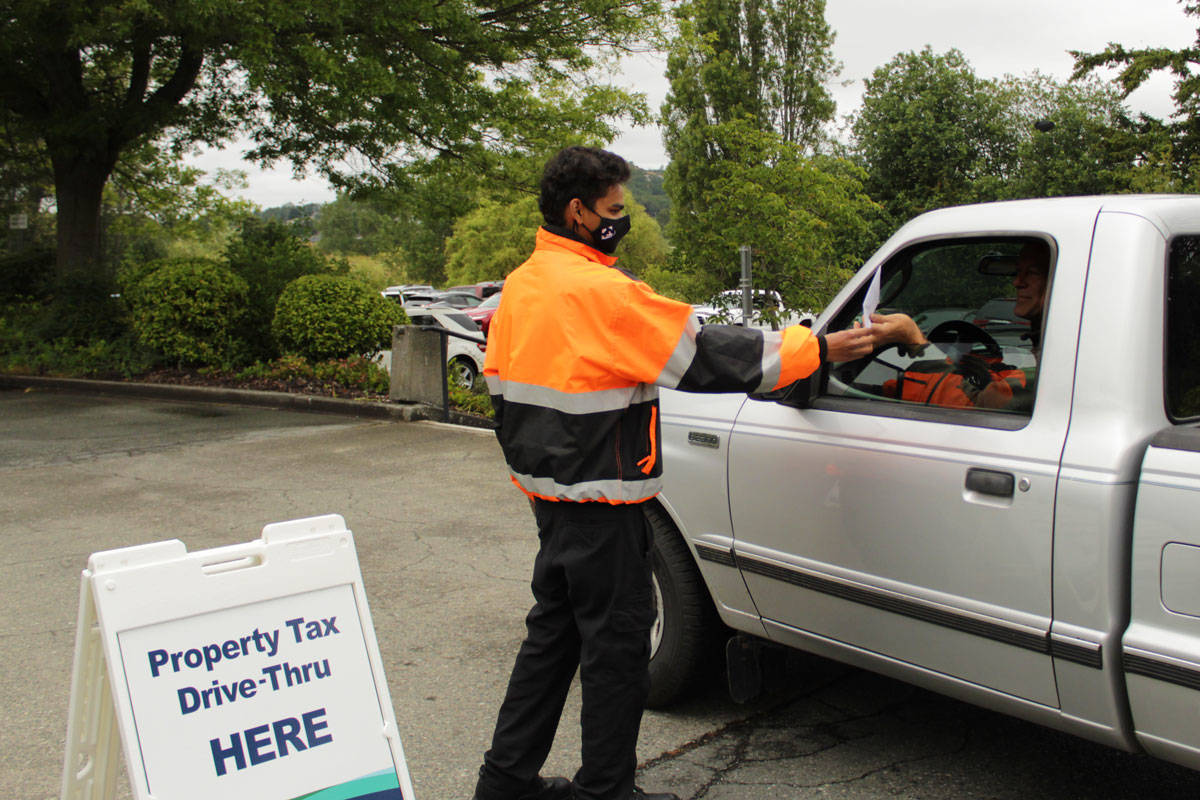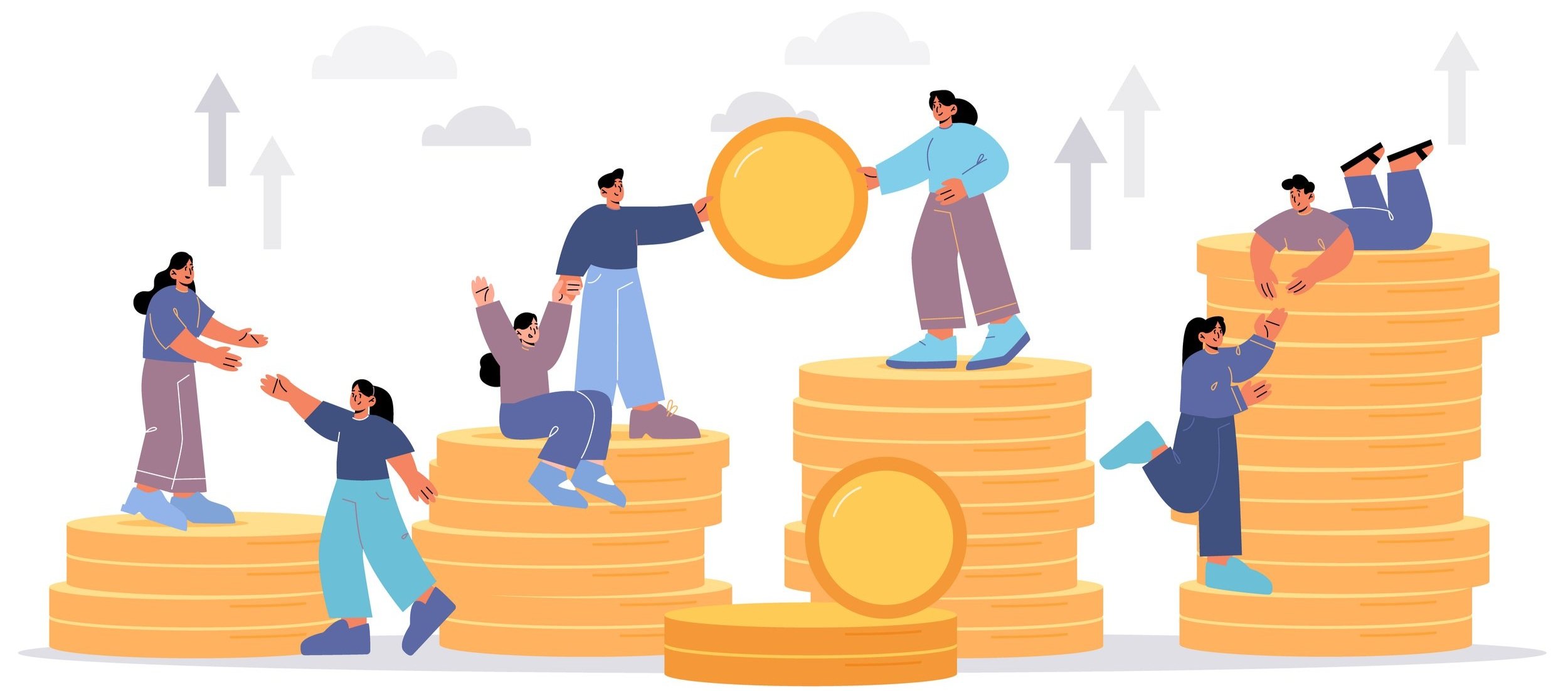

Finance
How Late Can You Pay Your Car Insurance
Modified: February 21, 2024
Looking for answers on how late you can pay your car insurance? Find out all you need to know about managing your finances and paying your insurance on time.
(Many of the links in this article redirect to a specific reviewed product. Your purchase of these products through affiliate links helps to generate commission for LiveWell, at no extra cost. Learn more)
Table of Contents
- Introduction
- Understanding Car Insurance Payments
- Late Payment Grace Period
- Consequences of Late Car Insurance Payments
- How Late Payments Affect Your Coverage
- How Late Payments Affect Your Premiums
- Late Payment Fees and Penalties
- Payment Options and Flexibility
- Steps to Take if You Can’t Pay on Time
- Conclusion
Introduction
Car insurance is a financial responsibility that every vehicle owner must fulfill. It provides protection in case of accidents, damage, and theft. Paying your car insurance premiums on time is crucial to maintain coverage and comply with legal requirements. However, life can sometimes throw unexpected curveballs that make it challenging to meet financial obligations when they are due.
In this article, we will explore the topic of late car insurance payments. We will discuss the grace period provided by insurance companies, the consequences of late payments, and how they can affect your coverage and premiums. Furthermore, we will delve into the fees and penalties associated with late payments, as well as the payment options and flexibility offered by insurers. Lastly, we will provide you with steps to take if you find yourself unable to pay your car insurance premiums on time.
Whether you’ve experienced a temporary financial setback or simply overlooked the due date, understanding the implications of late car insurance payments is essential. By being well-informed, you can make informed decisions and take the necessary actions to avoid any negative repercussions.
Understanding Car Insurance Payments
Car insurance payments refer to the regular premiums you pay to your insurance provider in exchange for coverage and protection. These payments are typically made on a monthly, quarterly, or annual basis, depending on your policy terms. Understanding how car insurance payments work is essential for managing your finances effectively.
When you purchase car insurance, you enter into an agreement with the insurance company. This agreement outlines the terms and conditions of your coverage, including the payment schedule and amount. Car insurance premiums are determined by several factors, such as your driving record, the type of vehicle you own, your age, and your location.
It is important to note that the total premium amount is usually divided into equal installments based on the chosen payment frequency. For example, if your annual premium is $1,200 and you opt for monthly payments, you will be required to pay $100 each month. Make sure to understand the breakdown of your premium amount and the payment frequency before committing to a policy.
To ensure that your car insurance coverage remains active, it is crucial to make timely payments. This will help avoid any lapses in coverage and ensure that you are protected in the event of an accident or incident. Late car insurance payments, however, can lead to several consequences and potentially impact your coverage and premiums.
Understanding the payment structure and terms of your car insurance policy empowers you to manage your finances effectively and meet your obligations on time. If you have any questions or uncertainties about your payments, it is always a good idea to reach out to your insurance provider for clarification.
Late Payment Grace Period
Life can be unpredictable, and there may be times when you’re unable to pay your car insurance premium by the due date. In such situations, it is important to be aware of the late payment grace period provided by your insurance company. The grace period is the additional time granted to policyholders to make their payments without facing immediate consequences.
The length of the grace period can vary depending on your insurance provider and your specific policy. Typically, insurance companies offer a grace period of 10 to 30 days. During this period, your coverage remains in effect, and you have the opportunity to bring your payments up to date without penalties or policy cancellations.
However, it is important to note that the grace period does not mean you can delay your payment indefinitely. While you may not incur immediate penalties or policy cancellations during the grace period, it is best to make your payment as soon as possible to avoid any potential negative impacts on your coverage.
It is crucial to understand the terms and conditions of the grace period provided by your insurance company. Some insurers may continue to provide coverage during the grace period, while others may suspend coverage until the payment is received. Additionally, certain policies may include provisions that allow for a shorter or longer grace period.
Missing the deadline for your car insurance payment should not be taken lightly, even if you have a grace period. Late payments can still have consequences, and it is always in your best interest to make your payment on time to ensure continuous coverage and peace of mind.
If you find yourself unable to make your car insurance payment within the grace period, it is essential to take proactive steps to address the situation. Contact your insurance provider as soon as possible to discuss your options and potential solutions. Communication is key, and they may be able to offer assistance or flexibility to help you through temporary financial difficulties.
Consequences of Late Car Insurance Payments
While there may be a grace period for late car insurance payments, it’s important to understand that there can still be consequences if you fail to make your payment on time. These consequences can vary depending on your insurance provider and policy terms. Here are some potential impacts of late car insurance payments:
1. Lapse in Coverage: If you fail to make your car insurance payment within the grace period, your coverage may lapse. This means that you will no longer have insurance protection for your vehicle, leaving you vulnerable in case of accidents, damage, or theft. Driving without insurance is not only illegal in most places, but it also puts you at financial risk.
2. Policy Cancellation: In some cases, insurance companies may choose to cancel your policy altogether if you consistently fail to make payments on time. Cancellation can have long-term consequences, as it may result in higher premiums or difficulty finding coverage with other providers in the future.
3. Loss of Discounts and Benefits: Many insurance policies offer discounts and benefits based on a good payment history. If you have a habit of making late payments, you may lose out on these advantages, leading to increased premiums and reduced coverage options.
4. Negative Impact on Credit Score: Late car insurance payments may be reported to credit bureaus and can negatively affect your credit score. A lower credit score can make it more challenging to obtain credit in the future, not just for insurance purposes but also for other financial needs.
5. Difficulty in Reinstating Coverage: If your car insurance policy is canceled due to repeated late payments, it can be challenging to reinstate coverage. You may be required to pay higher premiums, face stricter underwriting requirements, or even be denied coverage altogether.
6. Legal Consequences: In some jurisdictions, driving without insurance is a punishable offense. If your car insurance lapses due to late payments, you may face legal consequences such as fines, license suspension, or even criminal charges.
It is important to understand and consider these potential consequences when it comes to late car insurance payments. It is always best to make payments on time to ensure continued coverage and peace of mind. If you are facing financial difficulties, communicate with your insurance provider to explore possible solutions and alternatives.
How Late Payments Affect Your Coverage
Late car insurance payments can have significant implications for your coverage and protection. While the specific impact may vary depending on your insurance provider and policy terms, here are some common ways that late payments can affect your coverage:
1. Lapse in Coverage: If you fail to make your car insurance payment within the grace period, your coverage may lapse. This means that you will no longer have insurance protection for your vehicle, and any accidents or incidents that occur during this time will not be covered by your insurer. It’s crucial to make your payments on time to ensure continuous coverage and avoid any gaps in protection.
2. Limited or Suspended Coverage: Some insurance providers may choose to limit or suspend your coverage if you have a history of late payments. This means that certain benefits or protections may be temporarily or permanently removed from your policy until you bring your payments up to date. The specific limitations or suspensions will depend on your policy terms and the discretion of your insurance company.
3. Exclusion of Certain Events: Late payments may result in exclusions for certain events or situations, such as accidents or claims occurring during the period of non-payment. This means that if an incident happens while your coverage has lapsed due to late payments, your insurance company may deny your claim, leaving you responsible for any costs or damages.
4. Loss of Policy Add-Ons: If you have additional coverage options or policy add-ons, such as roadside assistance or rental car reimbursement, late payments may result in the removal of these benefits. This can leave you without valuable services that you had previously relied upon.
5. Difficulty in Obtaining Future Coverage: Consistently making late payments or allowing your coverage to lapse due to non-payment can make it challenging to obtain car insurance in the future. Insurance companies consider your payment history when evaluating new applications, and a poor track record can result in higher premiums or even denial of coverage.
It’s important to understand that late car insurance payments can jeopardize your coverage and put you at risk financially. Therefore, it is crucial to prioritize making your payments on time to ensure continuous coverage and the peace of mind that comes with it. If you are experiencing difficulties in making payments, reach out to your insurance provider to discuss potential payment arrangements or assistance options.
How Late Payments Affect Your Premiums
Car insurance premiums are determined by various factors, such as your driving record, age, location, and the coverage options you choose. Late car insurance payments can have an impact on your premiums and potentially result in increased costs. Here’s how late payments can affect your premiums:
1. Premium Increases: When you consistently make late car insurance payments, insurance companies may view you as a higher risk or less responsible policyholder. As a result, they may increase your premiums to mitigate that risk. These premium increases can vary depending on your insurance provider and policy terms but can be significant over time.
2. Loss of Good-Payment Discounts: Many insurance companies offer discounts to policyholders who have a history of on-time payments. However, consistently making late payments or allowing your coverage to lapse can result in the loss of these discounts. This can lead to higher premiums as you no longer qualify for the reduced rates associated with good payment history.
3. Non-Renewal or Cancellation: Insurance companies reserve the right to non-renew or cancel your policy if you have a history of late payments. This can result in difficulties in finding new coverage and may lead to higher premiums with other insurers due to the perceived risk associated with your payment history.
4. Impact on Insurance Score: Late car insurance payments can also impact your insurance score, which is similar to a credit score but focuses on your insurance history. A poor insurance score can result in higher premiums or limited coverage options when it comes to renewing your policy or seeking coverage with other insurers.
5. Long-Term Financial Consequences: Late payments can have long-term financial consequences beyond just increased premiums. These consequences can extend to other areas of your life, such as obtaining other types of insurance or loans, as insurers and lenders often consider your payment history when evaluating your risk profile.
It’s important to prioritize making your car insurance payments on time to avoid these potential negative impacts on your premiums. If you’re facing financial difficulties or are unable to make a payment, consider contacting your insurance provider to discuss potential solutions, such as setting up alternative payment arrangements or exploring available assistance programs.
Late Payment Fees and Penalties
When it comes to late car insurance payments, there are often fees and penalties associated with missing the due date. These fees and penalties can vary depending on your insurance provider and policy terms. Here are some common late payment fees and penalties you may encounter:
1. Late Payment Fee: Insurance companies may charge a flat fee for late payments. This fee is typically a fixed amount, such as $15 or $25, and may be added to your next premium, or you may have to pay it separately. It’s important to review your policy documents or contact your insurance provider to determine the specific late payment fee.
2. Interest Charges: Some insurance companies may charge interest on overdue payments. The interest rate and method of calculation can vary, so it’s crucial to check your policy details. Accumulating interest charges can increase the total amount you owe and make it more challenging to catch up on your payments.
3. Policy Cancellation: If you consistently fail to make your car insurance payments or ignore payment reminders, your insurer may choose to cancel your policy altogether. Policy cancellation can have long-term consequences, such as higher premiums with other insurers and difficulties in obtaining coverage in the future.
4. Reinstatement Fees: If your policy is canceled due to non-payment and you wish to reinstate it, your insurance company may require you to pay a reinstatement fee. This fee covers administrative costs associated with reinstating your coverage and can vary depending on your insurance provider.
5. Impact on Future Premiums: Consistently making late payments can result in premium increases when it’s time to renew your policy. Insurance companies may view late payments as a sign of increased risk and may adjust your premiums accordingly.
It’s crucial to be aware of any late payment fees and penalties outlined in your car insurance policy. If you’re facing financial difficulties, it’s recommended to contact your insurance provider as soon as possible. They may be willing to work with you to find a solution, such as setting up an alternative payment plan or exploring available assistance programs. Communication is key in these situations to mitigate any potential negative consequences of late payments.
Payment Options and Flexibility
Insurance providers understand that life can be unpredictable, and there may be instances where making your car insurance payment on time becomes challenging. To accommodate their policyholders, insurance companies often offer various payment options and flexibility to ease the burden of timely payments. Here are some common payment options and flexibility measures that insurance providers may offer:
1. Multiple Payment Methods: Insurance companies typically provide different payment methods to suit their policyholders’ preferences. These can include online payments, phone payments, automatic bank withdrawals, credit or debit card payments, and traditional mail-in payments. The availability of payment methods may vary depending on your insurer, so it’s essential to inquire about the options available to you.
2. Payment Frequency: Insurance companies often provide flexibility in choosing the frequency of your payments. While quarterly or annual payments are common, some insurers offer monthly or even bi-monthly payment options. Selecting a payment frequency that aligns with your budget and financial situation can make it easier to manage your car insurance payments.
3. Payment Reminders: Many insurers offer payment reminders to ensure that policyholders are aware of upcoming due dates. These reminders can be in the form of emails, text messages, or even automated phone calls. Taking advantage of payment reminders can help you stay on track with your payments and avoid any late fees or penalties.
4. Grace Period: As mentioned earlier, insurance companies often provide a grace period to give policyholders additional time to make their payments without immediate consequences. Understanding the length of your grace period and any applicable terms can help you navigate any temporary financial difficulties.
5. Payment Plans: In certain situations, insurance providers may offer payment plans to help policyholders manage their payments more effectively. These plans may involve spreading out the total premium amount over multiple installments, allowing for smaller, more manageable payments over a specific period.
If you anticipate difficulty making your car insurance payment on time, it’s crucial to contact your insurance provider before the due date. They may be willing to work with you to find a solution that allows you to maintain your coverage. Remember, communication is key in these situations, and being proactive can help alleviate any financial stress and potential negative consequences.
It’s important to note that payment options and flexibility measures may vary depending on your insurance provider and policy. Therefore, it’s always recommended to review your policy documents or reach out to your insurer directly to understand the specific payment options and flexibility options available to you.
Steps to Take if You Can’t Pay on Time
Life can be unpredictable, and there may be times when you’re unable to make your car insurance payment on time. If you find yourself in this situation, it’s essential to take proactive steps to address the issue. Here are some recommended steps to follow if you can’t pay your car insurance premium on time:
1. Contact Your Insurance Provider: As soon as you realize you won’t be able to make your payment on time, reach out to your insurance provider. Explain your situation and discuss potential options or alternatives. Insurance companies may be willing to work with you and provide solutions that can help you meet your financial obligations.
2. Explore Payment Arrangements: Many insurance providers offer payment arrangements for policyholders facing temporary financial difficulties. These arrangements may involve spreading out the missed payment or creating a schedule that allows you to catch up gradually. Discuss the possibility of setting up a payment plan that suits your budget and timeline.
3. Consider Financial Assistance Programs: In certain situations, insurance companies may have financial assistance programs or resources available to policyholders who are experiencing hardships. Inquire about any assistance programs that may be applicable and explore the eligibility criteria and application process.
4. Review Your Policy: Take the time to review your car insurance policy and understand the specific terms and conditions related to late payments. Familiarize yourself with the grace period, late payment fees, and other potential consequences. Having a clear understanding of your policy can help you navigate the situation more effectively.
5. Evaluate Your Budget: Assess your financial situation and determine if there are any areas where you can adjust your budget to accommodate your car insurance payment. Look for any discretionary spending that you can temporarily reduce or eliminate to free up funds for the payment.
6. Seek Financial Guidance: If you’re experiencing significant financial difficulties, consider reaching out to a financial advisor or credit counseling agency. These professionals can provide guidance and support in managing your overall financial situation, including prioritizing your car insurance payments.
Remember, communication is key throughout this process. Stay in regular contact with your insurance provider and keep them updated on your progress. It’s important to address the issue proactively rather than ignoring it, as ignoring late payments can lead to more severe consequences such as policy cancellation or difficulty obtaining coverage in the future.
By taking these steps, you demonstrate your commitment to fulfilling your financial obligations and maintaining your car insurance coverage. The goal is to work together with your insurance provider to find a solution that suits your needs and helps you navigate temporary financial setbacks.
Conclusion
Paying your car insurance premiums on time is crucial for maintaining coverage and complying with legal requirements. Late car insurance payments can have serious consequences, including lapses in coverage, policy cancellations, increased premiums, and negative impacts on your credit score. It’s important to understand the potential implications of late payments and take proactive steps to address financial difficulties if they arise.
Here are the key points to remember:
1. Familiarize yourself with the payment terms and conditions of your car insurance policy. Understand the grace period provided by your insurance provider and any fees or penalties associated with late payments.
2. Make every effort to pay your car insurance premium on time. Set up reminders, explore different payment methods, and adjust your budget when necessary.
3. If you find yourself unable to make a payment, contact your insurance provider as soon as possible. Discuss options such as payment arrangements or financial assistance programs that may be available.
4. Keep the lines of communication open with your insurance provider. Regularly update them on your situation and progress towards resolving late payments.
By taking proactive measures, communicating with your insurance provider, and prioritizing timely payments, you can avoid the negative consequences of late car insurance payments. Keeping your coverage active and in good standing ensures that you are protected and have peace of mind while on the road.
Remember, each insurance provider may have their own specific policies and procedures regarding late payments, so it’s important to review your policy documents and speak directly with your insurance provider for personalized guidance.














